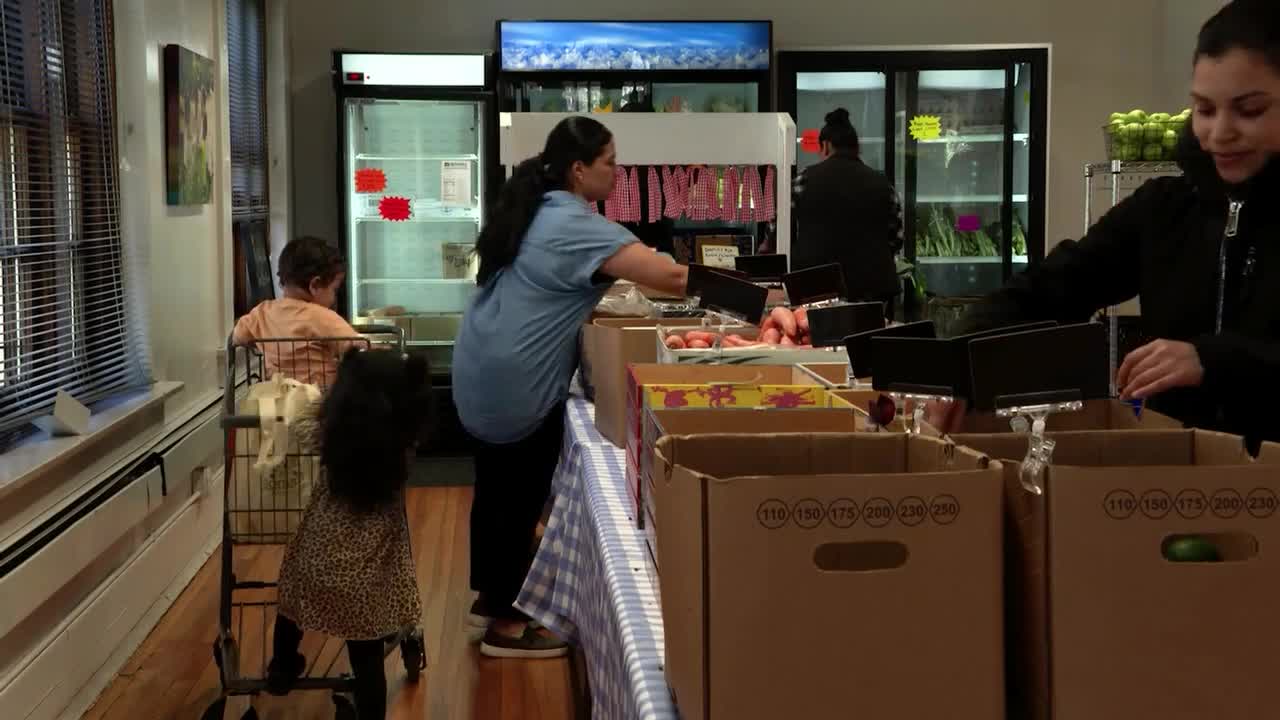DENVER — At a pop-up food bank in Denver on Monday, Carlos Munoz stood in line with his neighbors, collecting fresh groceries and greeting familiar faces. “These people, they help,” he said.
The mobile food pantry is just one example of how local nonprofits are stepping up to combat hunger – and they’re receiving a significant boost from the City of Denver. This week, more than $11 million in grants are being distributed through the Healthy Food for Denver’s Kids initiative. The goal is to improve food access for low-income and at-risk youth.
Since its launch in 2019, the program – funded through a voter-approved sales tax – has awarded nearly $100 million to more than 100 organizations working to address the food gap across Denver.

The nonprofit Montbello Walks, the Food Bank of the Rockies, and several community partners organized Monday’s pop-up food bank. For families without transportation or access to nearby grocery stores, these pop-ups can be a lifeline.
“Everybody can't just get out and go shopping,” said Pam Jiner with Montbello Walks. These food pantries are a very big help and asset to the community. Especially in the summer, when the kids are home, these boxes make a big difference.”
Asia Gray, a resident coordinator at Bluff Lake Apartments, said many of her neighbors struggle to afford basic groceries.
“We suffer from a lot of food insecurity,” she said. “Just being able to have Pam come out and do a full distribution – it’s like, okay, I can make it through the rest of the week.”
One of the largest recipients this year is Clayton Early Learning, which received $1 million to support its efforts, including its no-cost grocery store and expand nutrition programming for families with young children at Clayton Early Learning.

“Here at Clayton, we run the Clayton Cares Market, where families can come in, grab what they need, and walk out – no checkout, no payment,” said Nichelle Ortiz, Senior Manager of Food and Nutrition Initiatives.
Ortiz says access to healthy food early in life can shape how children eat as they grow up.
“Families are being forced to make really tough decisions,” Ortiz said. “And sometimes, healthier options just aren’t affordable or accessible. This funding helps us keep our shelves full and dignified.”
With additional support, Clayton hopes to grow its community gardens and expand nutrition education for parents and children alike.
At Denver Public Schools, grant funding is helping to fuel another big shift: scratch-cooked meals, grown locally and served to every student for free.

“It’s been a game-changer,” said Theresa Hafner, Executive Director of Enterprise Management at DPS. “Everyone gets to eat, and that’s one less thing families have to worry about.”
DPS now operates two farms and a greenhouse, harvesting fresh produce that ends up on school lunch trays across the district. Last year alone, they grew over 20,000 pounds of tomatoes.
But Hafner says the future of the free meals program is uncertain.
“We know that it's in jeopardy because of the financial condition of the state and with the budget concerns. So, we know that some referendums might be going to the voters this fall to help continue the funding for this initiative,” Hafner said.
From school gardens to food pantries on wheels – local groups are stepping up, and this funding is helping them do even more.
“We’re going to do what we can to help,” said Jiner. “This isn’t just about food. It’s about letting people know they’re not alone.”






